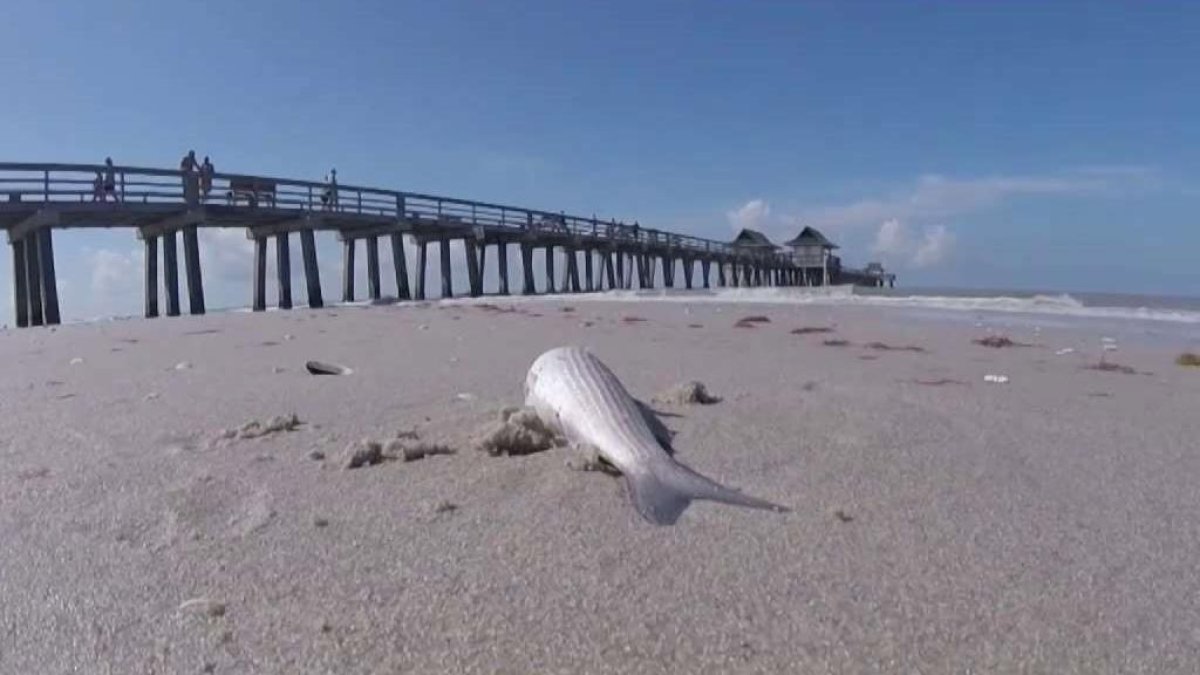Residents of Florida’s southwest coast have complained of burning eyes and difficulty breathing. Dead fish washed up on beaches and a beach festival was canceled when it was scheduled for a month.
The region has seen an outbreak of the toxic algae that make up red tide this week, raising concerns that it could linger in the region for a long time. The current proliferation began in October.
The annual BeachFest in the town of Indian Rocks Beach, Florida, sponsored by a homeowners association, was canceled after that group determined, with the cooperation of the city and the Pinellas County Health Department, that the red tide could last until the middle of the next month, when the event has been scheduled.
“Red tide is present on the beach and is expected to remain in the area for the next few weeks,” the Indian Rocks Beach Home Owners Association detailed in a letter to the public.
“It’s a shame it had to be canceled but it’s the best decision in the interest of public health,” he added.
Nearly two tons of debris, mostly dead fish, was washed up on Pinellas County beaches and taken to a landfill, county spokesman Tony Fabrizio told the Tampa Bay Times.
About 1,000 pounds (455 kilograms) of dead fish have been washed up on St. Pete Beach since the start of the month, city parks official Mandy Edmunds told the newspaper.
Red tide, a natural bloom of toxic algae in the Gulf of Mexico, is aggravated by the presence of nutrients such as nitrogen in the water.

